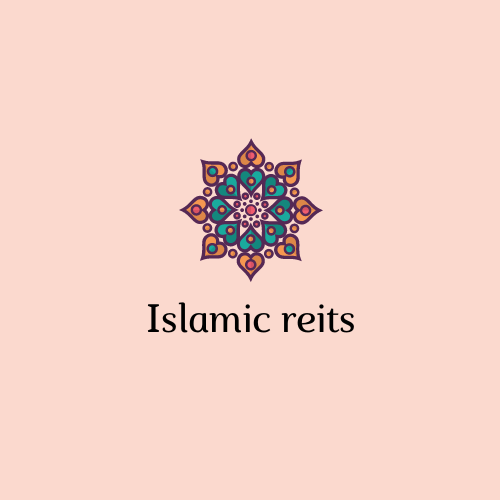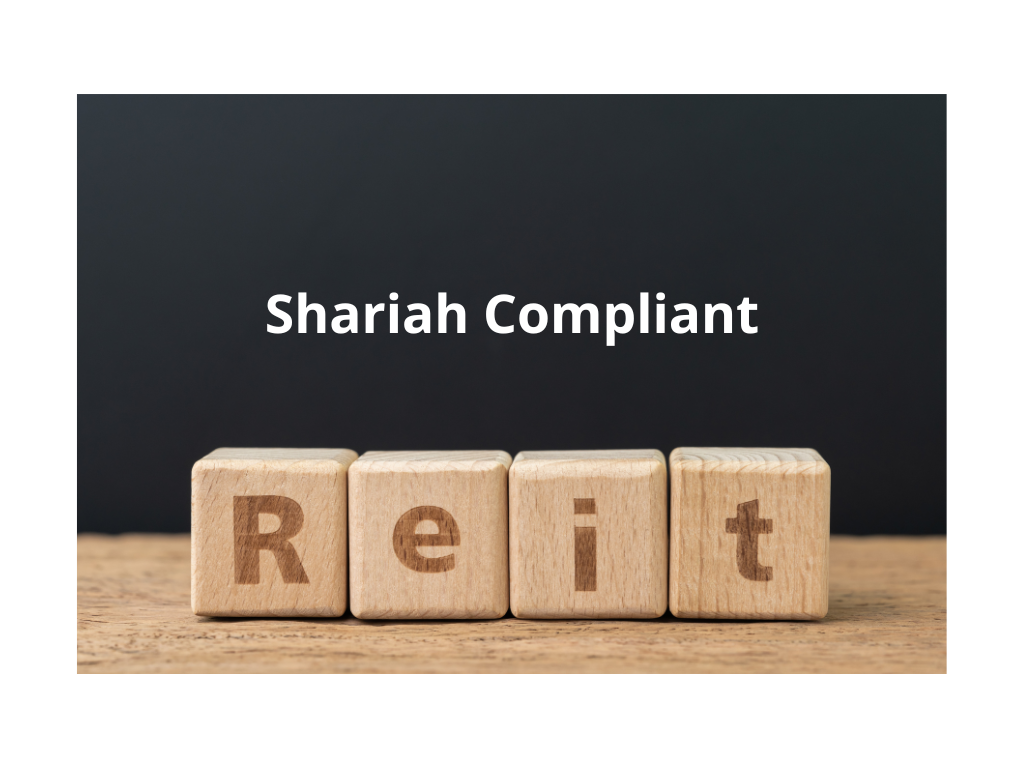Islamic Real Estate Investment Trusts, or Islamic REITs, are a type of investment vehicle that has its roots in Islamic finance, which is becoming a more common feature of the global investment landscape.
In fact, The global Islamic finance markets are expected to continue growing, with a projected total asset value of 5.9 trillion U.S. dollars by 2026. This represents a significant increase from the 3.95 trillion U.S. dollars total asset value of 2021, indicating the growing importance of Islamic finance as a major player in the global financial industry.
In this article, we will provide an introduction to Islamic REITs and explore the key principles of Islamic finance that underpin them. We will discuss the structure of Islamic REITs, the benefits and risks of investing in them, and examine their future growth prospects. By the end of this article, readers should have a better understanding of what Islamic REITs are, how they work, and what potential benefits and risks they offer to investors.
Definition of Islamic REITs
Islamic Real Estate Investment Trusts (REITs) are investment vehicles that conform to Islamic principles and comply with Shariah law. They provide investors with an opportunity to invest in real estate projects that are compliant with Islamic finance principles, which include a prohibition on interest-based transactions (riba), gambling (maisir), and investments in industries deemed to be harmful to society (haram).
The income generated by Islamic REITs is derived from rental income and capital appreciation from the properties they hold. The income is distributed to investors in the form of dividends. Islamic REITs operate similarly to conventional REITs, but with a different set of principles that adhere to Islamic finance guidelines.
A brief history of Islamic REITs
The Al `Aqar KPJ REIT was the first Islamic REIT, launched on July 24th, 2006, with an initial issue of 340 million units. It was listed on the Bursa Malaysia on August 10th, 2006, and was backed by health-care assets, including specialist hospitals, with a total value of RM481 million or USD138 million.
Another notable Islamic REIT is the Al Hadharah Boustead REIT, which was launched on January 15th, 2007, with an issue of 220 million units. It was listed on the Bursa Malaysia in February of that year and was backed by plantation assets.
Since then, Islamic REITs have gained popularity in other countries with significant Muslim populations, including the Gulf Cooperation Council (GCC) countries, Indonesia, and even Singapour.
Principles of Islamic finance
Islamic finance is based on a set of principles that comply with Shariah law, the Islamic legal framework. Some of the key principles of Islamic finance include:
Core principles
- Prohibition of interest-based transactions (riba): Islamic finance prohibits interest-based transactions, as earning interest is considered exploitative and unfair.
- Sharing of profits and losses: Islamic finance emphasizes the sharing of both profits and losses between the parties involved in a transaction.
- Prohibition of speculative behavior (gharar): Islamic finance discourages speculative behavior, as it is considered a form of gambling that creates uncertainty and risk.
- Ethical investing: Islamic finance prohibits investing in industries deemed harmful to society (haram), such as those related to alcohol, tobacco, and gambling.
- Asset-backed financing: Islamic finance requires transactions to be backed by tangible assets, such as real estate or commodities, which provide security for both parties.
- Social responsibility: Islamic finance promotes social responsibility and encourages the use of profits to benefit society through charitable giving and community development projects.
These principles are designed to ensure that financial transactions are conducted in a fair, transparent, and ethical manner, while also promoting social welfare and economic stability.
Haram or non-permissible activities
In general, the following activities are considered non Shariah-compliant, and thus must be avoided:
- Financial services based on riba (interest);
- Gambling/gaming;
- Manufacture or sale of non-halal products or related products;
- Conventional insurance;
- Entertainment activities that are non-permissible according to the Shariah;
- Manufacture or sale of tobacco-based products or related products;
- Stockbroking or share trading in Shariah non-compliant securities
Guideline for Islamic REITs
In order for a real investment trust to be considered compliant with Shariah principles, the following guidelines must be adhered to:
- The financing used to acquire or develop the real estate must not come from riba.
- The tenants of the real estate must operate shariah compliant activities.
- Insurance schemes for protecting the real estate should also be shariah compliant (Takaful scheme).
- Investment of cash/liquidity from the real estate must be made in shariah compliant instruments.
- A shariah committee or advisor must be appointed to ensure the REIT compliance
Islamic REITS vs conventional REITs
There are several similarities between Islamic and conventional REITs in terms of their objectives, administration, and structure. However, there is one key difference between them, which is how the income of the REIT is derived and managed.
In an Islamic REIT, the income is derived from tenants who operate businesses that comply with Shari`ah principles. This means that the tenants must engage in permissible activities in accordance with Islamic finance.
In contrast, conventional REITs have no such requirement for the types of tenants they can have.
Another difference is in how the funds of the REIT are managed. Islamic REITs must be managed in a Shari`ah-compliant manner, while conventional REITs have no such requirement.
Overall, while there may not be many fundamental differences between Islamic and conventional REITs, the key difference lies in the Shari`ah compliance requirements of the former, which can affect the types of properties and tenants they can invest in.
Structure of an Islamic REITs
The different types of Islamic REITs
The structure of Islamic REITs can vary, but they generally fall into two types: property-owning REITs and property development REITs. Property-owning REITs acquire and manage a portfolio of income-generating properties, while property development REITs invest in the development of real estate projects.
The legal structure of an Islamic REITs
In terms of legal structure, Islamic REITs are typically established as a trust, with the property held by the trustee on behalf of the unit holders. This allows for the efficient and flexible management of the REIT’s assets.
Shariah compliance and certification
Shariah compliance is a fundamental aspect of Islamic REITs. To ensure that the REIT complies with Islamic finance principles, it must undergo a certification process from a recognized Shariah supervisory board. The certification process includes a review of the REIT’s investment policies and procedures, as well as the assets it invests in.
Once a Shariah certification has been obtained, the REIT is required to comply with the principles and guidelines set out by the supervisory board. This includes ensuring that the sources of income for the REIT are halal and that investments are made in Shariah-compliant assets.
Benefits of Investing in Islamic REITs
An Islamic REIT is an investment vehicle structured as a unit trust that acquire or develop real properties, thus it offer several benefits, including:
Diversification benefits
Investing in Islamic REITs can provide a means for investors to diversify an investment portfolio comprising several asset classes. By investing in a range of real estate properties, an investor can spread their risk and potentially achieve more stable returns.
Affordability
Real estate investment trusts (REITs) provide an excellent opportunity for retail investors who are interested in investing in property or real estate but lack the funds to do so. By investing in REITs, investors with limited capital can diversify their portfolio and participate in large-scale commercial real estate projects without the need to actively manage the propreties.
Lower risk than other investments
Islamic REITS are a low risk, passive income generating vehicle with high certainty of cash flow rentals backed by lease agreements with tenants. Their dividends are also higher than those of other asset classes which may serve as an inflation hedge.
Compared to direct real estate investment, an illiquid asset class, with Islamic REITs investors can enjoy the benefits of real estate investment without the risks and responsibilities associated with direct ownership.
Potentially high returns
By design, an Islamic REITS, just like a conventional one, must distribute all or at least a high proportion of its income as dividends to its unit holders. In addition to dividends, investors can also benefit from capital gains over time.
Liquidity
REITs offer greater liquidity compared to directly investing in properties as their units are conveniently traded on stock exchanges, similar to shares. This allow investors to easily buy and sell units as needed, in contrast to owning physical properties which can be more challenging to liquidate quickly.
Opportunities for socially responsible investing
Last but not least, Islamic REITs provide an opportunity for socially responsible investing, as they invest in assets that comply with Islamic principles and avoid businesses that are considered unethical or harmful.
Risks associated with Investing in Islamic REITs
Investing in Islamic REITS, like any investment, comes with a set of risks. Here are the the most obvious ones:
Market risk
The value of a REIT unit is subject to demand and supply, which can fluctuate based on market conditions, such as changes in the overall economy, real estate trends, the REIT management, and investor sentiment. Investors may receive less than their original investment amount at any given time.
Liquidity risk
Like with any investment in real estate, it may be difficult to sell your investment in an Islamic REIT, especially during times of market instability.
Interest rate risk
Even as Islamic REITS do not use interest rate instruments to acquire their properties nor to invest their income, rising interest rates do have an impact on the value of their assets and their performance.
This is true because of the role and effect of interest rates in the overall economy.
Regulatory risk
The regulatory environment for Islamic finance can change, which could have an impact on Islamic REITs.
Future of Islamic REITs investments
Islamic REITS are still in their infancy and with the right regulatory framework, they are poised for significant growth in the coming years.
What are investors looking for in Islamic REITs
Investors looking to invest in Islamic REITs typically prioritize the following criterias:
- Shariah compliance, which is a key requirement for investments in Islamic finance.
- Income stability.
- Capital stability and growth.
- Quality real estate assets that generate consistent cash flows.
- Liquidity is another important factor, as investors generally prefer to be able to sell their units easily if needed.
- Diversification is also a key consideration, as investors seek to minimize risk by spreading their investments across multiple properties and locations.
- Expert management is also highly valued, as it can help to ensure the long-term success of the REIT.
- Finally, investors look for transparency in the management and operation of the REIT, which can help to build trust and confidence in the investment.
Who are the potential investors for Islamic REITs
By providing these features, Islamic REITs can attract a wide range of investors looking for both financial returns and the opportunity to invest in a socially responsible manner:
- Pension funds
- Fixed return funds such as Takaful and insurance companies
- Private banking investors
- Retail investors
- International real estate and equity funds
Conclusion
Islamic REITs provide investors with diversified, socially responsible investment opportunities with potential high returns and lower risk in real estate.
However, investors must emphasize the quality of the REITs and the quality of their management to mitigate the risks inherent to market, liquidity, interest rate, and regulation.
As Islamic finance continues to grow, it is expected that the demand for Islamic REITs will increase, and more products will become available to meet the demand.

